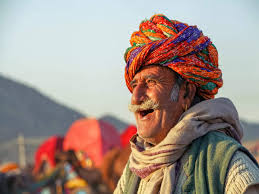The Magic of Cultural Experiences
Traveling to new places offers more than just sightseeing; it provides an opportunity to immerse oneself in different cultures and gain a deeper understanding of the world we live in. Cultural experiences enrich our lives in ways that cannot be replicated through any other means.
Connecting with Locals
One of the most rewarding aspects of cultural experiences is the chance to connect with locals. Whether it’s sharing a meal with a family in a remote village or learning traditional crafts from artisans, these interactions create lasting memories and foster genuine connections that transcend language barriers.
Exploring Traditions
Every culture has its own unique traditions and customs that tell a story of its past and present. Participating in local festivals, ceremonies, or rituals allows travelers to delve deeper into the heart of a culture, gaining insights that go beyond surface-level observations.
Tasting Local Cuisine
Food is an integral part of any culture, reflecting its history, geography, and values. Trying local dishes not only tantalizes the taste buds but also provides a window into the culinary heritage of a region. From street food markets to fine dining establishments, each bite tells a delicious story.
Learning History and Heritage
Cultural experiences often involve visits to historical sites, museums, and landmarks that offer glimpses into the past. By exploring these places with knowledgeable guides or historians, travelers can gain a deeper appreciation for the rich tapestry of human history and heritage.
Embracing Diversity
Every cultural experience is an opportunity to embrace diversity and celebrate differences. By stepping out of our comfort zones and immersing ourselves in unfamiliar traditions and practices, we not only broaden our perspectives but also cultivate empathy and respect for all cultures.
In conclusion, cultural experiences are like magic portals that transport us to new worlds filled with beauty, wonder, and connection. They remind us of the richness and diversity of our planet while highlighting the shared humanity that unites us all.
Exploring Cultural Experiences: Frequently Asked Questions and Examples
- What are examples of cultural activities?
- What are 5 cultural examples?
- What are examples of cultural experiences?
- What is an example of a cultural culture?
- What are the cultural experiences?
- What are culture experiences?
- What are some cultural activities?
- What is cultural experience in literature?
What are examples of cultural activities?
Cultural activities encompass a wide range of experiences that allow individuals to engage with and appreciate different aspects of a particular culture. Examples of cultural activities include participating in traditional dance performances, attending music concerts featuring local artists, exploring historical landmarks and museums, joining cooking classes to learn authentic recipes, attending religious ceremonies or festivals, visiting artisan workshops to witness traditional crafts being made, and immersing oneself in the daily life of a community through homestays or cultural exchanges. Engaging in these diverse cultural activities provides a deeper understanding and appreciation of the traditions, customs, and values that shape a culture’s identity.
What are 5 cultural examples?
When exploring cultural experiences, there are countless examples that showcase the diversity and richness of human civilization. Five cultural examples that offer a glimpse into different aspects of society include traditional dance performances that convey stories and traditions, culinary festivals celebrating local cuisine and flavors, historical landmarks that narrate the past of a region, art exhibitions showcasing creativity and expression, and cultural ceremonies that highlight rituals and beliefs passed down through generations. Each of these examples provides a unique opportunity to delve into the heart of a culture, offering insights into its values, customs, and heritage.
What are examples of cultural experiences?
Cultural experiences encompass a wide range of activities that allow individuals to engage with and learn about different cultures. Examples of cultural experiences include participating in traditional ceremonies and festivals, exploring historical landmarks and museums, trying local cuisine, attending performances of music and dance, visiting artisan workshops to learn traditional crafts, staying with local families or communities to immerse oneself in daily life, and engaging in language exchange programs to communicate with native speakers. These experiences not only provide insights into the customs and traditions of a culture but also foster connections and understanding between people from diverse backgrounds.
What is an example of a cultural culture?
An example of a cultural cuisine is Japanese cuisine, which is renowned for its meticulous preparation, fresh ingredients, and emphasis on aesthetics. Traditional Japanese dishes like sushi, ramen, and tempura not only tantalize the taste buds but also reflect the country’s history, geography, and culinary traditions. The art of Japanese cooking involves a deep respect for ingredients and an unwavering commitment to preserving the authenticity of each dish, making it a quintessential cultural experience for food enthusiasts worldwide.
What are the cultural experiences?
Cultural experiences encompass a wide range of immersive encounters that allow individuals to engage with the customs, traditions, arts, and values of a particular society or community. These experiences can include participating in local festivals, trying traditional cuisine, visiting historical landmarks, interacting with residents, learning about indigenous practices, and exploring art and music unique to a culture. Through these interactions, individuals gain insights into the beliefs and lifestyles of different groups, fostering mutual understanding and appreciation for the diversity that enriches our world. Cultural experiences not only provide a deeper connection to the places we visit but also broaden our perspectives and promote cross-cultural dialogue and respect.
What are culture experiences?
Culture experiences encompass a wide range of immersive encounters that allow individuals to engage with the customs, traditions, arts, and values of different societies. These experiences often involve interactions with local communities, participation in cultural events and festivities, exploration of historical landmarks, sampling traditional cuisines, and learning about the unique practices that shape a particular culture. By engaging in culture experiences, individuals can gain a deeper understanding and appreciation of diverse ways of life, fostering cross-cultural awareness and empathy while creating lasting memories that transcend geographical boundaries.
What are some cultural activities?
Cultural activities encompass a wide range of immersive experiences that allow individuals to engage with and appreciate different aspects of a particular culture. Some common cultural activities include attending traditional festivals and celebrations, exploring historical landmarks and museums, participating in local arts and crafts workshops, trying authentic cuisine through food tours or cooking classes, watching traditional performances such as dance or music shows, engaging in language exchange programs to learn about communication nuances, and volunteering for community service projects to interact with locals and contribute positively to the community. These activities not only provide insights into a culture’s customs and traditions but also foster cross-cultural understanding and appreciation.
What is cultural experience in literature?
A cultural experience in literature refers to the exploration and portrayal of different cultures, traditions, beliefs, and societal norms through written works such as novels, poems, plays, and essays. It involves delving into the unique perspectives and experiences of diverse communities, shedding light on their histories, values, and challenges. Through literary works that capture the essence of various cultures, readers are able to immerse themselves in unfamiliar worlds, gaining insights into the complexities of human existence and fostering a deeper appreciation for the richness of global diversity. Cultural experiences in literature serve as windows into the hearts and minds of people from all walks of life, offering a transformative journey of understanding and empathy for both writers and readers alike.






